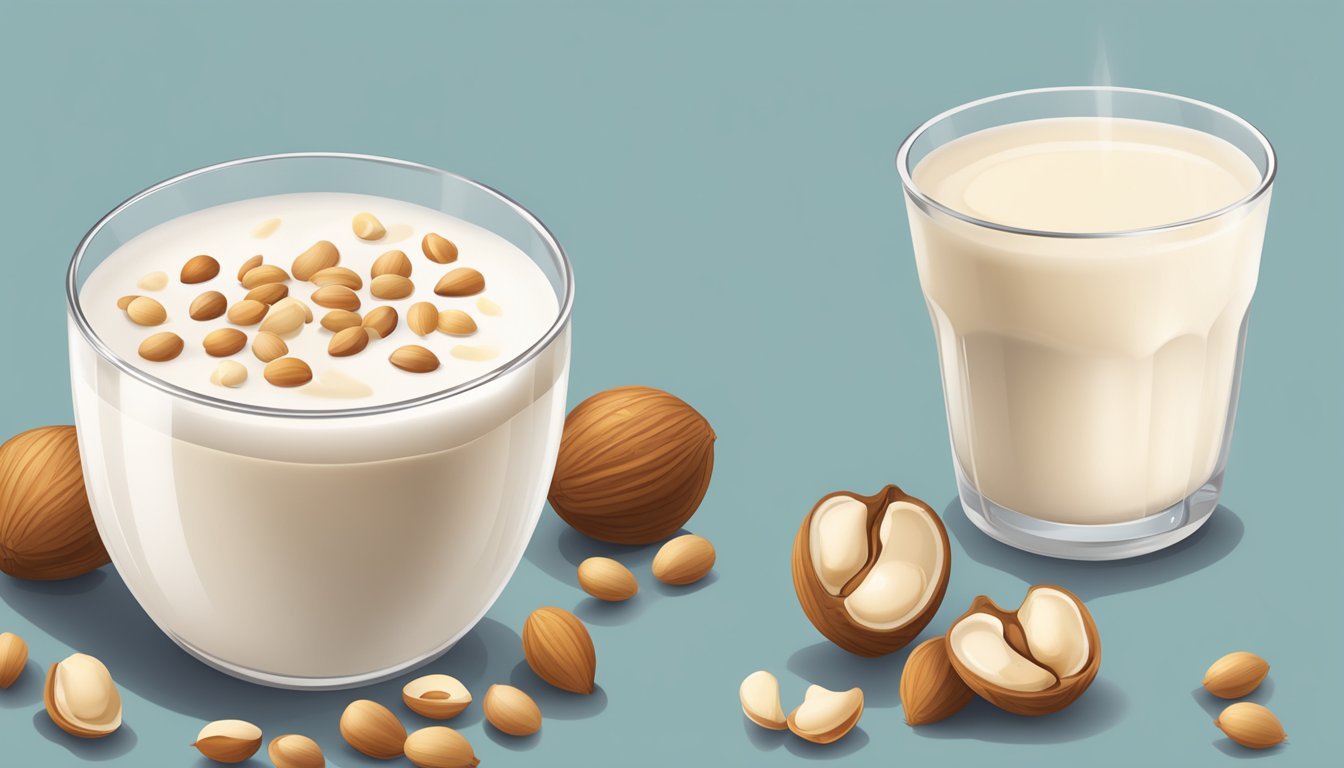How Many Servings of Macadamia Milk Is Too Much
A Nutritional Guide
When it comes to incorporating macadamia milk into your diet, understanding the recommended serving sizes is crucial for maintaining a balanced intake. Experts generally consider one to two servings of macadamia milk per day to be a healthy amount for most individuals. This non-dairy milk alternative is known for its lower calorie and sugar content compared to cow's milk, making it a favorable option for health-conscious consumers.
Macadamia milk, typically made by blending macadamia nuts with water and then straining the mixture, offers a variety of nutrients such as healthy fats, calcium, and vitamin D. While its low carbohydrate content makes it suitable for ketogenic diets, it's also important to note that it has lower protein levels compared to other plant-based milks like soy or almond milk.
Overconsumption, like drinking several cups a day, isn't usually necessary and might lead to an imbalance in nutrient intake. As with any food or drink, moderation is key to ensuring you reap the benefits without overstepping recommended dietary guidelines.
Nutritional Profile of Macadamia Milk
Macadamia milk offers a nutrient-rich alternative to traditional dairy. Key components include healthy fats, minimal carbohydrates, and essential vitamins and minerals, making it a popular choice for health-conscious individuals.
Macronutrient Breakdown
Macadamia milk is notably high in healthy fats. A typical serving contains approximately 5 grams of fat, predominantly monounsaturated fats, which are known for their heart-health benefits.
Protein content in macadamia milk is relatively low, averaging 1-2 grams per serving. This is less compared to other nut milks like almond milk.
Carbohydrates are minimal, with less than 2 grams per serving, making it a keto-friendly option. It also contains negligible amounts of sugar.
Calories in macadamia milk are modest, typically around 50-70 per serving.
Fiber content is also low, as the milk is strained during production, removing most of the fibrous pulp.
Vitamins and Minerals Content
Macadamia milk is enriched with various essential vitamins and minerals. It often contains added calcium to match the content found in cow's milk, supporting bone health.
Vitamin D is frequently added to macadamia milk, enhancing its nutrition profile and aiding in calcium absorption.
Additionally, some brands fortify the milk with Vitamin B12, important for nerve function and energy production, particularly benefiting those on a vegan diet.
Macadamia nuts naturally supply manganese, which aids in enzyme function and bone formation, and potassium, crucial for heart and muscle function.
Iron content in macadamia milk is generally low but can provide small benefits towards daily requirements.
Comparison to Other Nut Milks
Compared to almond or cashew milk, macadamia milk has a creamier texture due to its higher fat content. This makes it particularly suitable for use in coffee and cooking.
Almond milk is lower in calories and fat but offers similar calcium and vitamin D fortification.
Cashew milk offers a similar fat profile but tends to have a slightly higher calorie count than macadamia milk.
In terms of protein, all three nut milks are relatively low compared to cow's milk or soy milk, which might be a consideration for those seeking higher protein intake.
Overall, the unique combination of healthy fats and essential nutrients makes macadamia milk a versatile and nutritious choice.
Health Benefits of Macadamia Milk
Macadamia milk offers a variety of health benefits, including improving heart health, supporting bone health, and aiding in weight management and diabetes control.
Heart Health Advantages
Macadamia milk is rich in monounsaturated fats, which are considered healthy fats. These fats play a significant role in managing cholesterol levels. Consuming macadamia milk can help lower LDL cholesterol and reduce the risk of cardiovascular diseases.
Monounsaturated fats are known for their anti-inflammatory properties. This can help decrease inflammation and oxidative stress, which are both linked to heart disease. The presence of these fats makes macadamia milk a heart-healthy option.
Bone Health and Nutrient Absorption
Macadamia milk is fortified with calcium and vitamin D, essential for strong bones. These nutrients work together to improve bone health and ensure proper nutrient absorption.
Calcium and vitamin D are critical in preventing osteoporosis and other bone-related issues. Macadamia milk also contains magnesium and potassium, which aid in maintaining bone density and strength. Regular consumption can contribute to overall skeletal health.
Weight Management and Diabetes Control
Macadamia milk is low in carbs and sugars, making it a suitable choice for those monitoring their weight and diabetes. It supports weight loss and prevention of obesity.
With less than two grams of carbs per serving, macadamia milk fits well into a keto-friendly diet. Its ingredients also help regulate blood sugar levels, making it beneficial for those with diabetes. Including it in the diet can assist in effective weight management and healthier blood sugar control.




